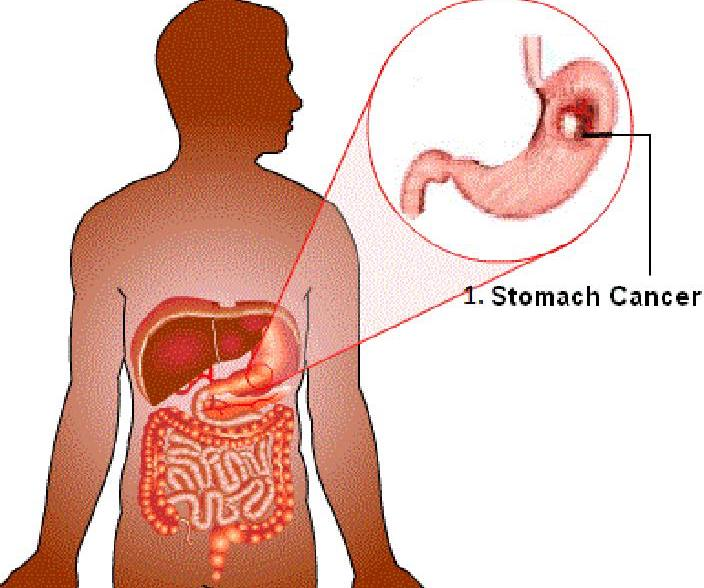Stomach cancer is a buildup of abnormal cells that form a mass in the stomach. It can form or grow in any part of the stomach.
Stomach Cancer is also called Gastric Cancer.
Stomach cancer is the third leading cause of cancer related deaths.
In 2018, Stomach cancer caused 783,000 deaths in the world according to World Health Organization.
Symptoms of Stomach Cancer
Stomach Cancer can lead to several symptoms. However, the symptoms appear after many years because of their slow growth. Due to this, many people suffering from this type of cancer may not receive diagnosis until the disease is at an advanced stage.
Early stage symptoms
- Difficulties when swallowing
- Feeling bloated after taking meals
- A sensation of feeling full at mealtimes
- Burping
- Stomach ache
- Vomit with blood
- Indigestion
- Trapped wind
- Pain in the breastbone
- Stool with blood
Advanced Stage symptoms
- Loss of weight
- Fatigue
- Loss of appetite
- Dark stool with blood
- Becoming anemic
- Fluid buildup in the stomach making the stomach feel lumpy
At the advanced stage the cancer has already spread and nearby organs can be affected. The organs that can be affected include The Liver and the Colon (Large Intestine).
Stages of Stomach Cancer
Gastric cancer stages are identified based on:
1. The number of lymph nodes involved
- How far the cancer has spread
- Size of the tumor
The tests that are usually carried out to determine the stomach cancer stages include:
Imaging tests i.e. CT scans, Biopsies, Laparoscopy and Endoscopic ultrasound.
Treatment of Stomach Cancer
Treatment of Gastric cancer depends on how far the cancer has spread.
Treatment of Stomach cancer includes:
- Radiation therapy where the doctor uses radioactive rays are used to kill the cancerous cells.
- Chemotherapy- Drugs (Cytotoxic medicines) are used to stop the cancer cells from growing. The cancer specialists may administer Chemotherapy to shrink the tumor before a surgical operation or to kill the remaining cancer cells after surgery.
- Surgery- Surgery is done to remove the stomach cancer as well as a margin of healthy tissue. This is done to remove all the cancerous cells. The Surgical operations include: Endoscopic mucosal resection, subtotal gastrectomy and Total gastrectomy.
- Medications
- Clinical trials for patients
Factors that increase the risk of Stomach cancer
- Peptic ulcers in the stomach
- Pylori infection
- Long term stomach inflammation that makes the stomach lining thinner
- Stomach polyps
- Pernicious anemia due to lack of Vitamin B12
- Intestinal metaplasia, in which cells that would usually line the intestine line in the Stomach lining.
Other factors:
- Smoking- Regular smokers are at a high risk of stomach cancer.
- Diet- Those who take smoked foods, processed or cured meat, pickled and regularly salted foods are at high risk of developing stomach cancer.
- Age- According to the American Cancer Society, 60% of those who suffer stomach cancer are at least 65 years of age. The risk increases significantly after the age of 50.
- Sex- Men are at a high risk than women
- Obesity also increases the risk of one suffering gastric cancer
- Family history- Having a close family member who has had stomach cancer increases the risk
Prevention
There isn’t a way to prevent stomach cancer entirely though one can take a few steps to reduce the risk of it developing. The steps include:
- Reduce quantity of pickled, salted and smoked food in the diet. Take fruits and vegetables.
- Quit smoking and avoid exposure to tobacco smoke.
- Taking non-steroidal anti-inflammatory drugs (NSAIDS) such as asprin
- Maintain a healthy weight
For more information, click here.



One thought on “Stomach Cancer; All you need to know about the disease”
Comments are closed.